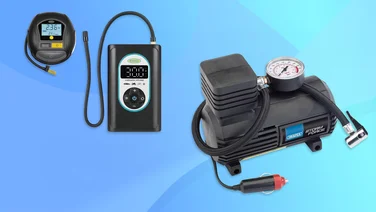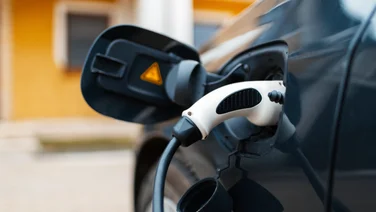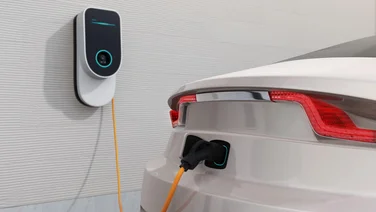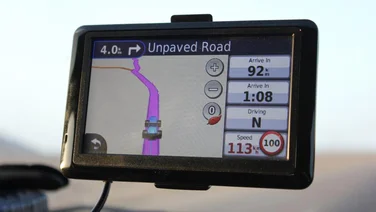To help us provide you with free impartial advice, we may earn a commission if you buy through links on our site. Learn more
- Get a free quote for a home EV charger today
- How to choose the best EV tariff for you
- Best EV tariffs: At a glance
- The best EV tariffs in 2023
- 1. Ovo Charge Anytime: Best EV charging scheme
- 2. Octopus Intelligent Octopus: Best-value EV tariff
- 3. Octopus Go: Best tariff for older EVs
- 4. British Gas Electric Driver: Best dual fuel EV tariff

You’ve chosen the best electric car for you and you’ve selected the right home wallbox charger for it; the next thing to do is ensure you’re signed up to the best EV tariff for your needs. Of those needs, your highest priority is likely to be a low cost per kilowatt hour.
EV tariffs are almost always dual-rate, which means you’ll pay less to charge your car when electricity demand is at its lowest and usually that’s overnight. That suits a great number of electric car owners, who often get into the habit of plugging it in when they get home in the evening. For these drivers, scheduling their charging directly from their car or via an app, either synced to the smart wallbox or provided by the electricity supplier, can make this whole procedure very easy indeed.
The process of switching tariffs is usually the same as when switching any other kind of utility, although the calculations required to ensure you’re getting the best deal are a bit more complex. And be sure to remember that, while the off-peak prices of an EV tariff are usually fixed, the peak prices are often variable, so can rise and fall with the wholesale cost of electricity.
Since energy costs began to spiral, there are fewer EV tariffs available, and many are now only open to existing customers. Below, we’ve pulled out the deals that are currently open to most EV drivers, and we’ve factored in customer satisfaction from the results of our 2022 Energy Awards.
Before you decide which tariff is best for you, you’ll need a charging point. Discover how much this will cost directly from suppliers near you by trying our free price comparison tool.
Get a free quote for a home EV charger today
Take our quick survey below and we’ll provide you with a quick, free quote for home EV charger installation.
How to choose the best EV tariff for you
How much will an EV add to my energy bill?
The best course of action is to make some educated guesses about the number of times you’re likely to charge over the course of a year. Base this on the real-world range of your car – bearing in mind it will probably not cover as many miles on a single charge as the manufacturer claims – and the total number of miles you’ll cover in a year.
For example, charging a Volkswagen ID.3 with a 58kW battery once a week – which should give you roughly 220 miles in the real world – will use 3,016kW in the space of a year. If you only ever charge at off-peak times, for around 9p per kilowatt-hour (kWh), that could cost you about £270 per year to be able to drive almost 11,500 miles. For the moment, at the government’s Energy Price Guarantee rate of 34p/kWh, you’ll pay £1,025. And it’s worth noting that the price guarantee is currently only in place until the end of June.
Why can’t I access some EV tariff deals?
As the wholesale cost of energy increased in April 2022, many providers withdrew their EV tariffs or made them unavailable to new customers. While it may not be impossible to access some of these deals, you may have to sign up to one of their other tariffs for a time and then switch.
Can I use a price comparison website?
Not all EV tariffs appear on price comparison websites as they’re too complex to calculate uniformly – with the vast difference between the cost of peak and off-peak power, and with electric cars using so much more power compared with household appliances, the variables are too great. So, at the moment, you’ll need to go directly to individual providers for prices.
READ NEXT: How to install an EV charger at home
What else do I need to get an EV tariff?
To get onto an EV tariff, you may have to provide proof that you own or lease an electric vehicle, or have one as a company car. And you’ll also need to get a smart meter fitted, if you’ve not got one already. A wallbox charger isn’t always a prerequisite, but having one installed will make your home charging faster and more convenient.
Remember that some EV tariffs are electricity-only, so you may need a separate gas agreement. And not all EV tariffs are compatible with all EVs and all wallbox chargers, but fortunately, any provider this applies to will make it very clear to the customer.
Best EV tariffs: At a glance
- Best EV charging scheme: Ovo Charge Anytime
- Best-value EV tariff: Octopus Intelligent Octopus
- Best tariff for drivers of older EVs: Octopus Go
- Best dual fuel EV tariff: British Gas Electric Driver
The best EV tariffs in 2023
1. Ovo Charge Anytime: Best EV charging scheme

Price: 10p/kWh | Buy now from Ovo
Ovo’s Charge Anytime deal isn’t an electricity tariff as such. Rather, it’s a free add-on available to any customer signed up to an Ovo deal. The beauty of this is that you can use a price comparison website to calculate the best deal in the usual way. Joining the Charge Anytime plan sees EV charging at a reduced rate of just 10p per kilowatt hour.
While that’s fractionally more expensive than other deals here, you’re not restricted to charging at off-peak times. You simply tell Ovo when you want your car charged by using its app, and Ovo will meter out the power to your car accordingly. You’ll pay your usual electricity rate, but Charge Anytime will reimburse you for the difference – ensuring that, in reality, you’re only paying 10p per kilowatt hour. Ovo claims that equates to a running cost of just 3p per mile.
There are two things to bear in mind, though: first, Ovo Charge Anytime is only compatible with certain EVs (though there are a lot of cars on its list); and second, you’ll need an Ohme Home, Ohme Home Pro, Indra Smart Pro or Indra Smart Charger V3 home wallbox to charge your car.
Key specs – Cost per kWh: 10p; Off-peak times: N/A; Solar panel compatible? No
2. Octopus Intelligent Octopus: Best-value EV tariff

Price: 7.5p/kWh (off peak) | Buy now from Octopus
At the moment, Intelligent Octopus is officially a beta product, meaning that you can probably expect the odd bump in the road as it’s still a new service. It’s hard to criticise Octopus for that, though, because the company is upfront about it on its website. And in our 2022 Energy Awards, Octopus led the field for customer service, with more than 70% of its customers telling us they’d recommend Octopus to a friend.
As with Ovo, it’s only available to those with certain EVs and certain wallboxes, though the list of both is extensive, so there’s a good chance you’ll be accepted. The all-important off-peak charging rate is 7.5p per kilowatt hour between 11:30pm and 5:30am – real bargain-basement stuff – but peak rates are variable and are higher in some regions than others.
You do need to be an Octopus customer to access the deal and, like other EV tariffs, you’ll need a smart meter. It’s also an electricity-only tariff, so you’ll need to arrange your gas separately.
Key specs – Cost per kWh: 7.5p (off-peak); Off-peak times: 11:30pm–5:30am; Solar panel compatible? Yes
3. Octopus Go: Best tariff for older EVs

Price: 9.5p/kWh | Buy now from Octopus
Octopus Go was one of the first tariffs to turn EV drivers’ heads, so it’s not surprising Octopus claims it’s the UK’s most popular EV tariff. But, at 9.5p per kilowatt hour, it’s more expensive than the new Intelligent Octopus tariff and there are only four hours of charging available at off-peak rates, compared with six, so why is it here? Quite simply because it’s available to drivers of any EV and it works with all home chargers. Which will make it popular with the cost-conscious owners of older, or second-hand, EVs and those with first-generation non-smart wallboxes.
As with Intelligent Octopus, Go customers are an extremely satisfied bunch and no other electricity provider makes bills as easy to understand.
Key specs – Cost per kWh: 9.5p (off-peak); Off-peak times: 12:30am–4:30am; Solar panel compatible? Yes
4. British Gas Electric Driver: Best dual fuel EV tariff

Price: 10p/kWh | Buy now from British Gas
British Gas’s Electric Driver tariff is one of very few to include gas, so it will appeal to customers who find running two separate agreements a bit of a faff. At 10p per kilowatt hour between midnight and 5.30pm, it’s still very competitive.
Unlike with Octopus or Ovo, you’ll have to use your car’s own scheduled charging function – which, depending on the model you have, can be brilliant or buggy – as British Gas doesn’t have its own app for this. But, on the upside, there’s no restrictions on the make or model of your car, or of your wallbox charger.
Key specs – Cost per kWh: 10p (off-peak); Off-peak times: 12:00am–5:30pm; Solar panel compatible? Yes






